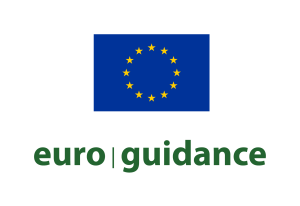Introduction to the open resource on mobility guidance
A period of studies or training abroad gives benefits both to the participants and their societies. Through increased international exchanges, the conditions for lifelong learning are improved, which contribute to a general increase in skills and growth for the individual and the society. The purpose of this resource is to contribute to proactive mobility guidance to motivate pupils and students to step out into the world.
For whom: This resource is developed for professionals who give advice to pupils or students who potentially could benefit from a mobility experience or who are already considering or participating in learning mobility. It is expected that participants have at least some experience in the field of guidance.
Overall objective: to provide information for guidance practitioners to become more confident in giving support and guidance to people before, during and after a mobility period and gain the knowledge of where to look for further information on learning mobility.
The material covers the following topics:
- Why learning mobility
- Mobility resources
- Role of guidance in mobility
- Mobility for guidance practitioners
This involves reading or watching the material provided. Additional optional material which can be useful for more in-depth personal study is also provided as a resource.
Why:
In today’s global world most professions include an international dimension. Several studies show that learning mobility positively affects future career opportunities. Living and studying in another country contributes to personal development, and global competences enrich peoples’ understanding of the world. Therefore, it is very important to offer young people good opportunities for developing their ability to see themselves in an international context and to make international comparisons and reflections.
Most of the Nordic and Baltic countries do not yet reach the EU goal of 20% mobile students in each cohort. Proactive mobility guidance can not only increase the volume of learning mobility, it can also increase the learning output from the international experience and make learning mobility more inclusive, so that more people with fewer opportunities can take part.
Young people contemplating studies abroad are often unsure about where they can study, whether they can cope in a foreign country and how exchange studies fit into their overall studies. It varies between the Nordic/Baltic countries to whom they can turn to for advice, but guidance professionals are typically one of the obvious groups. This course is an attempt to give guidance professionals some tools which they hopefully find useful in their work with young people who are considering going abroad.
Learning outcomes: by familiarising yourself with this open resource on mobility guidance, you should be able to:
- understand how international learning mobility can benefit students in their skills development and future employment.
- identify, select and/or suggest the appropriate resources for learning mobility for different types of students and point out where further information can be found.
- know how guidance professionals can increase the quality of the learning process through the main phases of the mobility.
- have an overview of valuable tools which have been developed to assist students and guidance practitioners alike.
- gain an insight of how to further develop skills as a guidance professional to give better guidance on learning mobility.
The bulk of this material is based on the Nordic-Baltic online course on mobility guidance, carried out in 2022. Information update of this resource is discontinued.
**
